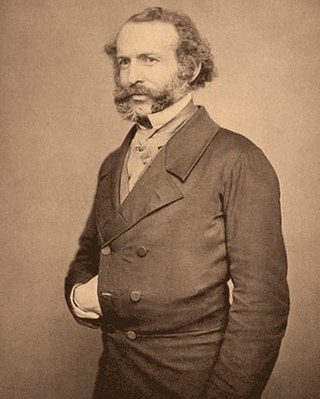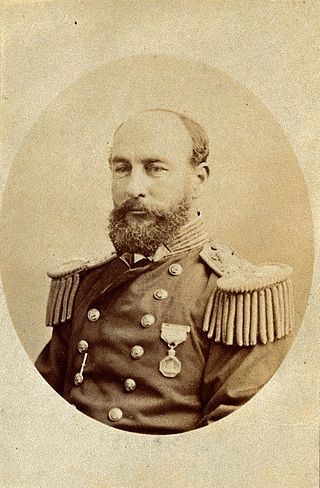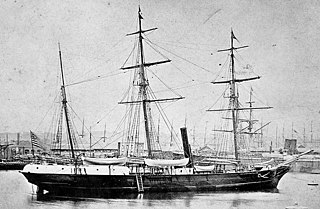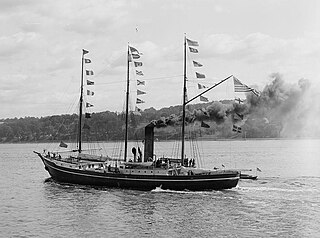Jacques Albert Suzanne, Sr. | |
|---|---|
 | |
| Born | April 17, 1880 |
| Died | August 1, 1967 (aged 87) |
| Spouse | Juliette DuChemin (m. 1903;died 1904) |
Jacques Albert Suzanne (April 17, 1880 - August 1, 1967) was a French painter, artist, pianist, actor and explorer.
Jacques Albert Suzanne, Sr. | |
|---|---|
 | |
| Born | April 17, 1880 |
| Died | August 1, 1967 (aged 87) |
| Spouse | Juliette DuChemin (m. 1903;died 1904) |
Jacques Albert Suzanne (April 17, 1880 - August 1, 1967) was a French painter, artist, pianist, actor and explorer.
Suzanne was born Albert Jacques Suzanne April 17, 1880, in Trouville-sur-Mer, Normandy, France. He trained in fine arts at the Le Havre art school.
He married Juliette Isabelle Emma DuChemin on December 5, 1903, and they had a daughter Isabelle. [1] After his first wife died in childbirth he migrated to the United States arriving through Ellis Island October 21, 1905. [2]
He claims to have attempted to reach the North Pole but gave when up when Robert Peary made it in 1909. [3]
He married Hannah Moynihan in the early 1930s and had four children: Pierre, Jacques Albert Suzanne, Jr. (born 1934), Ninon and Anna. They lived in Lake Placid, New York, where he bred husky dogs for film and tourism purposes. He appeared in several films including Out of Snows (1916) and The Spell of the Yukon (1916)
He had a great friend Noah John Rondeau, a well known hermit of the area.
He died on August 1, 1967, in Lake Placid, New York. [4] He was buried in North Elba near his friend Noah, who died 23 days later.

The Northwest Passage (NWP) is the sea lane between the Atlantic and Pacific oceans through the Arctic Ocean, along the northern coast of North America via waterways through the Canadian Arctic Archipelago. The eastern route along the Arctic coasts of Norway and Siberia is accordingly called the Northeast Passage (NEP). The various islands of the archipelago are separated from one another and from Mainland Canada by a series of Arctic waterways collectively known as the Northwest Passages, Northwestern Passages or the Canadian Internal Waters.

Henry Hudson was an English sea explorer and navigator during the early 17th century, best known for his explorations of present-day Canada and parts of the northeastern United States.

John Rae was a Scottish surgeon who explored parts of northern Canada.

Vice-Admiral Sir George Strong Nares was a Royal Navy officer and Arctic explorer. He commanded the Challenger Expedition, and the British Arctic Expedition. He was highly thought of as a leader and scientific explorer. In later life he worked for the Board of Trade and as Acting Conservator of the River Mersey.
Cape Chidley is a headland located on the eastern shore of Killiniq Island, Canada, at the northeastern tip of the Labrador Peninsula.

Admiral Sir George Back was a British Royal Navy officer, explorer of the Canadian Arctic, naturalist and artist. He was born in Stockport.

The history of the Northwest Territories covers the period from thousands of years ago to the present day. Prior to European colonization, the lands that encompass present-day Northwest Territories were inhabited for millennia by several First Nations. European explorers and fur traders began to explore the region since the late-16th century. By the 17th century, the British laid claim to both the North-Western Territory and Rupert's Land; and granted the Hudson's Bay Company a commercial fur trade monopoly over the latter region.

Northwood School is an independent co-educational boarding and day school for grades 9 through 12 located in Lake Placid, New York in the heart of the Adirondack Mountains.

Henry Grinnell was an American merchant and philanthropist.

Admiral Sir Albert Hastings Markham was a British explorer, author, and officer in the Royal Navy. In 1903 he was invested as a Knight Commander of the Order of the Bath. He is also remembered for designing the flag of New Zealand.
Events from the year 1967 in France.

HMS Alert was a 17-gun wooden screw sloop of the Cruizer class of the Royal Navy, launched in 1856 and broken up in 1894. She was the eleventh ship of the Royal Navy to bear the name, and was noted for her Arctic exploration work; in 1876 she reached a record latitude of 82° North. Alert briefly served with the US Navy, and ended her career with the Canadian Marine Service as a lighthouse tender and buoy ship.

Ross Gilmore Marvin was an American explorer who took part in Robert Peary's 1905–1906 and 1908–1909 expeditions to the Arctic. It was initially believed that Marvin drowned during the second expedition, but an Inuit member of the expedition later stated he shot and killed Marvin.

Arctic exploration is the physical exploration of the Arctic region of the Earth. It refers to the historical period during which mankind has explored the region north of the Arctic Circle. Historical records suggest that humankind have explored the northern extremes since 325 BC, when the ancient Greek sailor Pytheas reached a frozen sea while attempting to find a source of the metal tin. Dangerous oceans and poor weather conditions often fetter explorers attempting to reach polar regions, and journeying through these perils by sight, boat, and foot has proven difficult.
The Rae–Richardson Arctic expedition of 1848 was an early British effort to determine the fate of the lost Franklin Polar Expedition. Led overland by Sir John Richardson and John Rae, the party explored the accessible areas along Franklin's proposed route near the Mackenzie and Coppermine rivers. No contact with Franklin's party was achieved and Rae later interviewed the Inuit of the region, from whom he obtained credible accounts that the desperate remnants of Franklin's party had resorted to cannibalism. This revelation was so unpopular that Rae was shunned by the Admiralty and popular opinion; the search for Franklin continued for several years.

Revillon Frères was a French fur and luxury goods company, founded in Paris in 1723. Then called la Maison Givelet, it was purchased by Louis-Victor Revillon in 1839 and soon, as Revillon Frères, became the largest fur company in France. Branches were opened in London in 1869 and in New York in 1878. At the end of the 19th century, Revillon had stores in Paris, London, New York City, and Montreal.

The Jeannetteexpedition of 1879–1881, officially called the U.S. Arctic Expedition, was an attempt led by George W. De Long to reach the North Pole by pioneering a route from the Pacific Ocean through the Bering Strait. The premise was that a temperate current, the Kuro Siwo, flowed northwards into the strait, providing a gateway to the Open Polar Sea and thus to the pole.

SS Roosevelt was an American steamship of the early 20th century. She was designed and constructed specifically for Robert Peary′s polar exploration expeditions, and she supported the 1908 expedition in which he claimed to have discovered the North Pole.
First Name: Albert Jacques; Last Name: Suzanne; Ethnicity: French; Date of Arrival: Oct 21, 1905; Age at Arrival: 25y; Gender: M; Marital Status: W; Ship of Travel: Hudson; Port of Departure: Havre; Manifest Line Number: 0006
Jacques A. Suzanne; 17 Apr 1880; 01 August 1967
{{cite web}}: Missing or empty |url= (help)